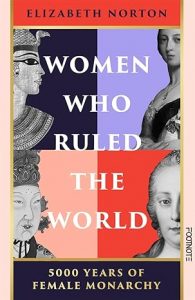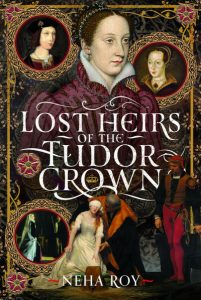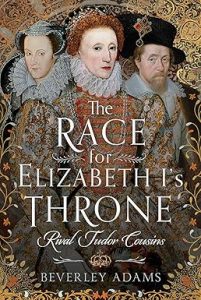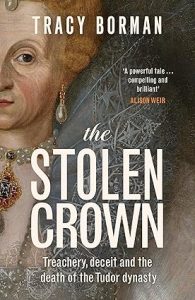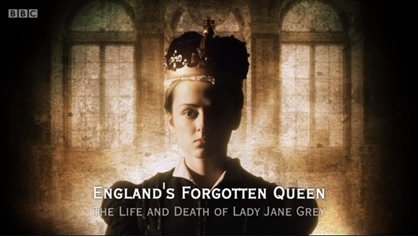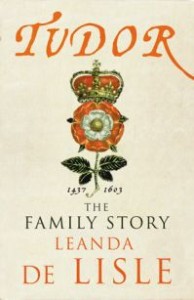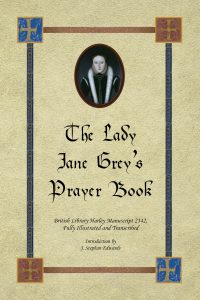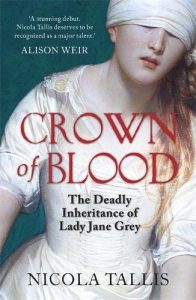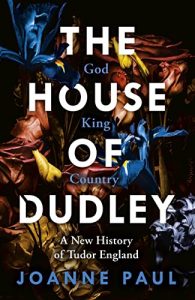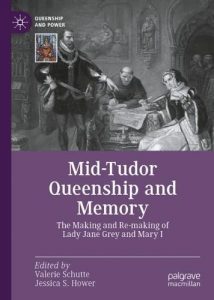Stephanie Kline is the author of ‘Edward VI: Henry VIII’s Overshadowed Son’ which will be published by Pen and Sword Books on 30th April.
Stephanie also runs ‘The Tudor Enthusiast’ website.
Buy ‘Edward VI: Henry VIII’s Overshadowed Son’:
Follow Stephanie on Social Media
Stephanie’s website: The Tudor Enthusiast
Twitter: @TudorEnthusiast
Many thanks to Stephanie for answering my questions.
Why did you choose this subject for your book?
Pen & Sword actually approached me about writing a biography on Edward VI, so I can’t take credit for choosing the subject. And on that note, I have to admit that I was a little hesitant about the prospect of writing about Edward, only because I know that for the majority of Tudor fans, Edward doesn’t exactly leap off of the pages of history and seem like the most exciting figure of the time period – especially compared with his father. I worried that I wouldn’t be able to make his life and story interesting to readers, because I think the general impression of him (at least at first) seems to be that his reign was inconsequential and sort of boring – seeing as he was only fifteen when he died, and his government was handled by men other than himself. But in fact, I’m really glad that I took this challenge on. In doing the research, I quickly realized that there was much more to say about Edward’s reign than what I had initially thought, and that he had much more of a significant impact on England – even as we know it today – than I think he is often given credit for. So for that reason, I found this a really worthy subject to be focusing on and I made it my mission to write about him in such a way that would bring his character and impact to life. My goal in writing the book quickly became making his story interesting and engaging for people, so hopefully Tudor fans could gain a better appreciation and respect for his time as England’s king, and the ramifications from that brief period that we still see today, particularly in Protestantism and the Church of England.
What does your book add to previous works covering this subject?
I hope it adds more of a focus on exactly where Edward was, what he was doing, and (at least to some extent) what he was thinking throughout the goings-on of his reign. I think we generally see a lot of focus being placed on Somerset and Northumberland, as they were the two men who really led Edward’s government during his reign. But sometimes the focus on those two men really comes at the expense of talking about Edward. Reading a history of Edward VI’s reign can often feel like we’re just reading a history of the Dukes of Somerset and Northumberland, and I really wanted to avoid that as much as possible. Of course, any study of Edward is going to include his regency council and the two men who headed it – so it can’t entirely be avoided. But where possible, I really tried to focus the attention back on Edward. What was he doing? How was he spending his time? Do we know what he was thinking and saying, and was he writing in his Chronicle about what was going on? Sometimes the effort is futile, but it was important to me. This is a book about Edward and I wanted to keep him at the center as much as possible. I also really like to hope that I placed a great deal of emphasis on the ‘trickle-down’ effect that Edward’s reign had on Protestantism and religious change in England – through my final chapters that detail the Tudor reigns that followed his, and in my points about the effects he had on the modern-day Church of England. I really wanted to impress upon readers that his reign had lasting impacts, which we often don’t think about.
What surprised you most researching this book?
I’m happy to say that what surprised me most was just how dramatic Edward’s reign really was. As I said, we have a tendency to view this period of Tudor history as being relatively boring. When we compare it to other Tudor monarchs, it can feel lacking at first glance. But in fact, Edward’s time as king was filled with all kinds of drama – war with Scotland, serious financial hardship, political and religious riots and rebellion, notable noblemen’s executions, botched marriage plans, and a wave of sweating sickness that overtook much of London. It was actually a really hard time to be an Englishman, and that made for some unexpectedly interesting research. All was not boring in England between 1547 and 1553 – in fact, far from it. So, I was pleasantly surprised by all the ways in which drama and difficulty popped up in the period. Not ideal for Edward and his subjects, I know – but for me, it made for some fun reading and writing.
Do you think Edward or John Dudley was the instigator of the ‘Devise for the Succession’?
I argue in the book that it’s quite likely the idea originated with John Dudley, Duke of Northumberland. With Edward’s health failing so dramatically between autumn 1552 and spring 1553, I think it stands to reason that Northumberland was feeling quite anxious about the prospect of Edward’s heir – his eldest sister, Catholic Princess Mary – coming to the throne. Not only would she surely undo all of the progress made for the Protestant Reformation, but she also downright hated Northumberland. What control he had held during the latter part of Edward’s reign would absolutely be gone the moment Mary became queen. So, I think it’s likely that he tried to take matters into his own hands – knowing that Lady Jane Grey was already (sort of) in line to the throne anyway through her mother, and was also a fervently Protestant peer of Edward’s. He knew Edward would likely support the idea (and he did). Not only that, but Northumberland could marry her to his son, Guildford, and potentially find himself even more in control of government as father-in-law of the Queen of England. With all of these puzzle pieces fitting together so neatly in Northumberland’s favor, I personally find it hard to argue against him being the mastermind behind the ‘Devise for the Succession’. But make no mistake – if Edward hadn’t agreed with the plan and seen its immense benefits for his Reformation, I firmly do not believe Northumberland would have had his way. This is a very strong example, in my view, of Edward being far more than the ‘puppet king’ (as he’s sometimes referred to). He had to have agreed with and believed in this plan – even if John Dudley was the original instigator.
What do you think Edward should be remembered for?
Without a doubt, he should be remembered as a reformer king. I think his reign’s impacts on Protestantism in England are really significant, especially when you consider how they evolved over the next several decades under his sister Elizabeth I’s reign. The Forty-Two Articles written during his reign (the Church of England’s statement of doctrine at the time) was later revised into Elizabeth’s Thirty-Six Articles, for example, which stand as one of the pillars of the modern-day Church, along with Thomas Cranmer’s Book of Common Prayer. The impacts of texts like these can’t be overstated when we look at the Church of England’s history. Although England’s Reformation never reached the peaks that Edward (and his advisors) wanted it to, it had really lasting effects that wove into the religious fabric of the country and remain there today. I think that’s pretty significant – especially for a fifteen-year-old king who reigned for only six years.





